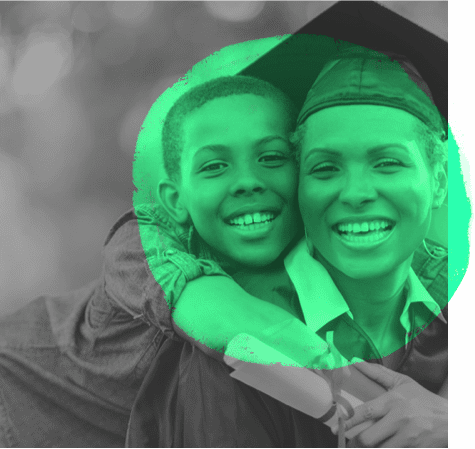We Need to Make Mental Health a Priority in College
I stared at my unfamiliar boney frame as I choked back tears. I stared for what felt like a few seconds until my roommate interrupted my unrelenting stream of thought, “Hey, you look like you could use some rest, can you turn off the light?” I released the tension in my chest for a moment before agreeing, instinctually pushing the few stringy strands of my hair behind my ear. I laid my head on my pillow; staring out the window into the silhouettes of endless buildings, twinklings lights and taxi cabs. My peripheral vision suddenly blurred as I dozed off, but suddenly the glass on my window disappeared. An unknown energy forced me out of my fourth story window and the rush of gravity jolted me awake.
I shot upright on my bed, breathless and my heart beating in my ear. It was the recurring nightmare that I deeply resented yet anticipated every night for the previous two months. I silently cried in my bed, ready to pull my cheap Target covers over my cold, sweaty body. But that night was different. I pushed the covers off, opened my laptop and, with the little money that was in my bank account, booked a one-way ticket back home to Washington State. I was in the middle of my sophomore year at Barnard College and I was desperately struggling with anxiety, imposter syndrome and depression. I was 3,000 miles away from my small rural hometown and I felt like I had no one to turn to for help. I hadn’t made a close group of friends and never even considered going to a faculty member or to my advisor because I didn’t realize that you could approach faculty with mental health concerns. As a first-generation college student, I didn’t want to confide in my parents out of fear that I would fuel their anxieties about my being away in college and would add to the stress they were facing through their financial troubles and emotionally difficult divorce.
After my swift action of booking a plane ticket home, everything else happened quickly. I requested a leave of absence from my dean and in the blink of an eye I was back in rural Washington. The drastic measures I took to come home forced me to face my mental health struggles. When I returned home, I started seeing a therapist and prioritized my mental health. And by the end of the year, I was ready to return to Barnard.
Now that I am back at Barnard, on track to graduate only a semester behind, I have reflected on what caused my breakdown and what colleges can do to help students like me because I know that I am not alone in my experience. Imposter syndrome, exacerbated the disparities by the obvious wealth and privilege of my peers coupled with the lack of institutional support and community of peers from a similar background, led me to the turbulent night in my dorm when I booked a plane ticket home. I am not alone in my experience.
First generation, low-income students from public schools, referred to as the “Doubly Disadvantaged,” a phrase coined by Anthony Abraham Jack, often struggle navigating the transition to elite colleges. As Jack highlights in his new book, the “doubly disadvantaged” struggle to acclimate to elite spaces because they lack the social capital that their wealthy peers have as a result of their socioeconomic privilege. Additionally, the disparities in wealth and resources is overwhelming. My peers were vacationing at 5-star resorts while I was worried about my next meal. This can be mentally exhausting and, for me, it deteriorated my self-esteem, created the illusion of isolation and made me question whether I belonged among them.
Mental health is a growing issue for college students in general, especially for those from marginalized backgrounds, and especially those at elite institutions. As concerns around mental health grow, it’s essential that institutions of higher education respond accordingly. While this may seem like a daunting task, there are a few small steps that colleges can take to improve the mental health of their students. First, colleges can play a pivotal role in destigmatizing conversations about mental health. Colleges often require mandatory workshops during freshman orientation to help students acclimate to campus life and the surrounding area. For example, I was required to take a self-defense workshop during my orientation. Colleges should consider requiring workshops that prioritize wellness and mental health and raise awareness of counseling services that are available on campuses. Additionally, it’s important that underrepresented students are able to find a community on campus. This can be done through mentorship and opportunities that connect underrepresented students with other students, faculty members, or administrators who come from similar backgrounds. Additionally, providing dedicated staff and space for FGLI students can help offer an environment that allows community to flourish. Finally, there should be more scaffolding built into academic services that provides proactive supports to students from under-resourced communities, like providing free textbooks or, at a minimum, reserving textbooks that students from FGLI backgrounds can borrow for the entire semester. I believe that with the support and guidance of college administrators across the country we can improve mental health and, in turn, improve college success.
Barnard College student, Marissa Reyes shares her story as a low-income, first-generation, Mexican-American student who experienced “imposter syndrome”, a feeling of self-doubt and lack of belonging that some first-generation students experience. She believes that strong on-campus student support is essential to helping students complete college.

